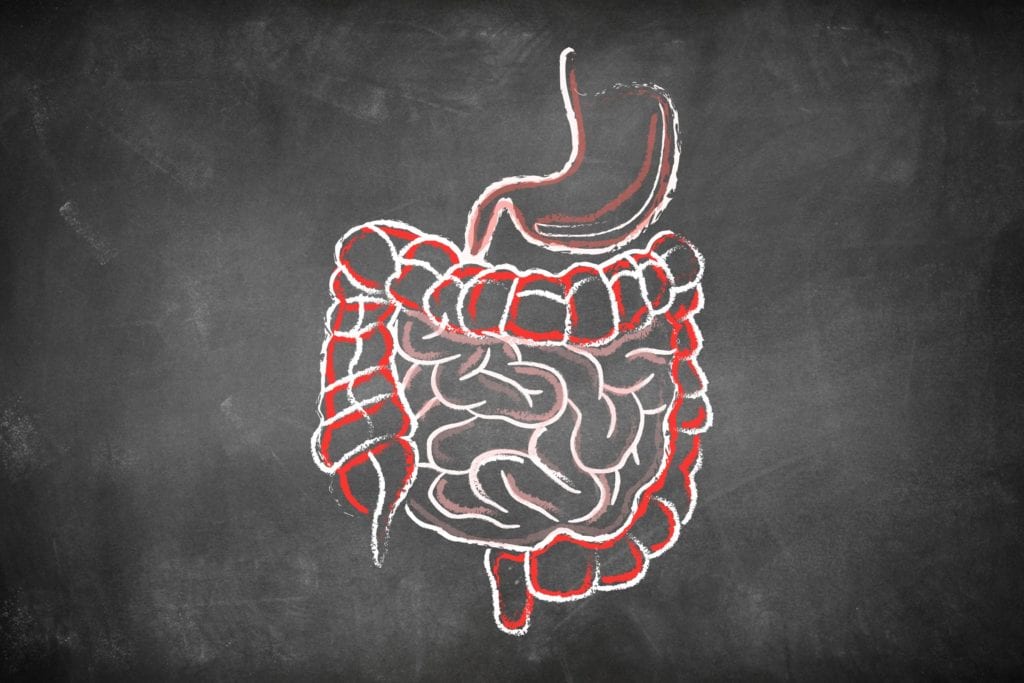

1. UC is caused by issues with the immune system
Experts aren’t sure what exactly causes ulcerative colitis, though they suspect it’s a problem with the immune system driven by genetics and the environment. The immune system typically only targets foreign invaders such as bacteria and viruses, but in the case of inflammatory bowel diseases like ulcerative colitis and Crohn’s disease, it also starts to attack the body’s intestinal tissues, says Nana Bernasko, DNP, a gastroenterology expert with the American Gastroenterological Association. “This hyperactivity of the immune system results in inflammation of the bowel,” she says. That inflammation, in turn, triggers ulcerative colitis symptoms.
2. UC runs in families
Genes seem to play a role in ulcerative colitis. About a fifth of people with UC have a direct family member who’s also been diagnosed. People of Jewish descent are also at an increased risk.
3. People are generally diagnosed with ulcerative colitis as young adults
Most people with UC are diagnosed between the ages of 15 and 30, though the diagnosis can happen at any age.
4. The condition is chronic, but not always constant
The goal of UC treatment isn’t to cure ulcerative colitis but to reach — and stay in —remission. With the help of medication, most people will be able to hit periods of time without any symptoms, says Dr. Bernasko.
5. Medications target the problem, not the symptoms
Most ulcerative colitis treatments the doctor will prescribe will do one of two things: reduce inflammation or block immune cells that trigger inflammation. Anti-inflammatories are less powerful medications, but the immunosuppressants can increase risk of infection because they keep reduce the activity of the immune system to do its usual work fighting off germs.
6. If you start biologics, stay on biologics
While your doctor might agree to let you stop taking medication if you’ve been in remission for a long time, you should continue biologics treatment if you can, says Glenn H. Englander, MD, gastroenterologist in West Palm Beach, Florida. “Young people don’t want to stay on medicine for the rest of their lives,” he says. But the body can build up antibodies to biologics if you stop taking them, so it’s best to keep up with treatment.
7. Ulcerative colitis symptoms aren’t limited to cramping and diarrhea
While abdominal pain and bloody diarrhea are the most common signs of ulcerative colitis, the disease can manifest in ways that are unrelated to the GI tract. Such symptoms can include fatigue, joint pain, rashes, fever, and eye irritation. “Ucerative colitis is immune system-mediated — it goes through the whole pathway,” says Dr. Englander. “It won’t just affect the colon but will be elsewhere in the body.”
8. There’s more than one type of ulcerative colitis
All UC affects the rectum, but different types of ulcerative colitis travel farther up the colon. Ulcerative proctitis is limited to the rectum and tends to be milder than the other forms. Proctosigmoiditis involves inflammation in both the rectum and the lower section of the colon, while left-sided colitis extends from the rectum farther into the large intestine. Total colitis, which affects the entire large bowel, is rare. Doctors will consider the severity and areas affected by UC when suggesting a treatment.
9. UC can have serious complications
If the inflammation goes on unchecked, UC can turn from a non-fatal (though uncomfortable) condition into something more serious. In rare cases, ulcerative colitis might lead to a hole in the bowel or colorectal cancer, which is why it’s important to keep up with your gastroenterologist appointments, says Rabia De Latour, MD, a gastroenterologist and assistant professor of medicine at NYU Langone Health in New York City.
10. Stress can be a UC trigger
Stress and anxiety won’t cause ulcerative colitis, but could make symptoms worse. For example, one study published in the journal Gastroenterology Research found that ulcerative colitis patients who experienced a lot of perceived stress (they kept stress diaries to track their experiences) had five times the risk of having a UC relapse compared with those who had low levels of perceived stress. Findings like this can make stress management a critical part of your UC treatment plan.
11. There’s no one anti-UC diet
While it would seem to make sense that certain meals would trigger symptoms in a digestive-related disease, studies haven’t pinpointed any specific food-related recommendations for preventing or relieving ulcerative colitis symptoms. “There is no magic diet for IBD,” says Dr. Bernasko. What you eat and how it affects your UC symptoms is highly personal. Your GI doctor might recommend you keep a food diary to look for patterns of foods that might seem to aggravate symptoms for you, so you can try to avoid eating them.





